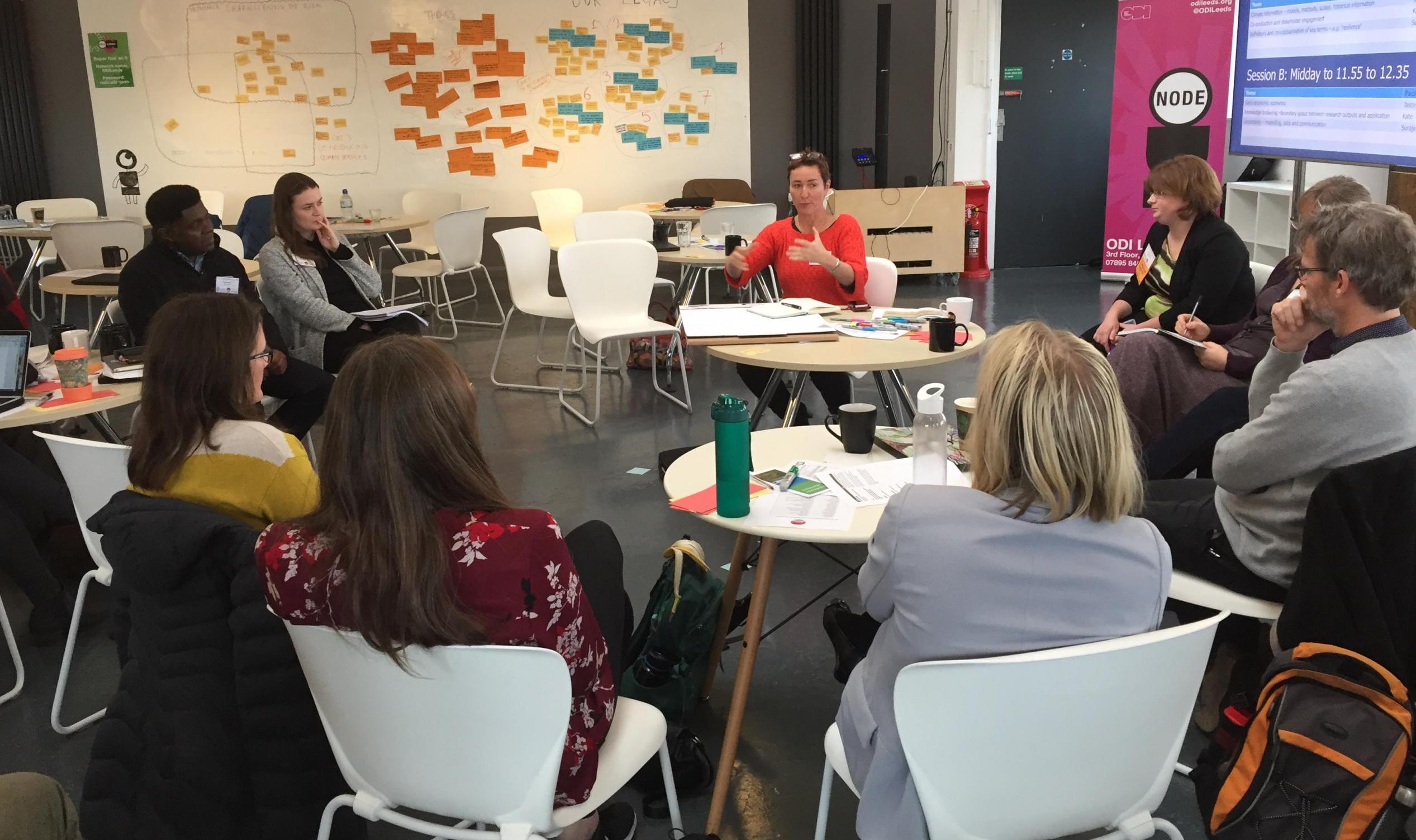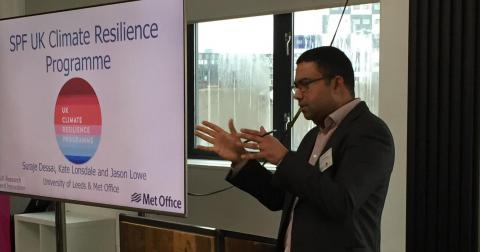The SPF UK Climate Resilience Programme held its first workshop on 14-15 November, bringing together representatives from 19 UKRI projects and four Met Office work themes.
The two-day workshop, organised and hosted by the UKCRP Champion team based at the University of Leeds, saw researchers from across disciplines and at all stages of experience sharing knowledge and ideas.
The event coincided with flooding in parts of the UK, highlighting the need for a national focus on climate risk and resilience. It also presented challenges for some participants who had travelled from places as far apart as Exeter, Newcastle, Cardiff and Stirling.
The workshop, held at ODI in Leeds, began with an introduction to the UK Climate Resilience Programme by the Champions, Suraje Dessai and Kate Lonsdale, and Jason Lowe of the Met Office. Liz Bergère of Defra gave the Government perspective, describing the requirements of the Climate Change Act, COP26 and other policy drivers. Mike Davies, standing in for an indisposed Kathryn Brown of the Committee on Climate Change’s Adaptation Committee, described the role of the Adaptation Committee and the UK Climate Change Risk Assessments and how the programme’s research outputs could contribute.
A booklet summarising the goals, findings and challenges of the currently funded UKCRP projects was circulated in advance of the workshop to help the 50 attendees become acquainted with each other’s work. Short verbal introductions to each project, which included mapping the research to the programme’s objectives and legacy, were followed by a session identifying common themes for potential synthesis activities.
On day 2, the first session explored the impact of the funded work to date, with researchers being asked to summarise the changes their projects have made, and to indicate whether these were planned, replicable and could be sustained. This was followed by small group discussions on synthesis opportunities identified on day one. These were:
- Climate information – models and methods
- Co-production and stakeholder engagement
- Uncertainty – modelling, data and communication
- Mitigation and decarbonisation
- Socio-economic scenarios
- Knowledge brokering – bridging between research outputs and application
- Definitions and conceptualisation of key terms
- Ecosystems linkages – land and water.
The final session focused on looking forward, describing future activities and the next steps to build the programme.
Read a personal take on the workshop by early career researcher Rachel Perks of the Met Office.
View the presentations, feedback and programme items here.

Co-Champion Kate Lonsdale leads a session on stakeholder engagement. Banner image shows co-Champion Suraje Dessai introducing the programme

